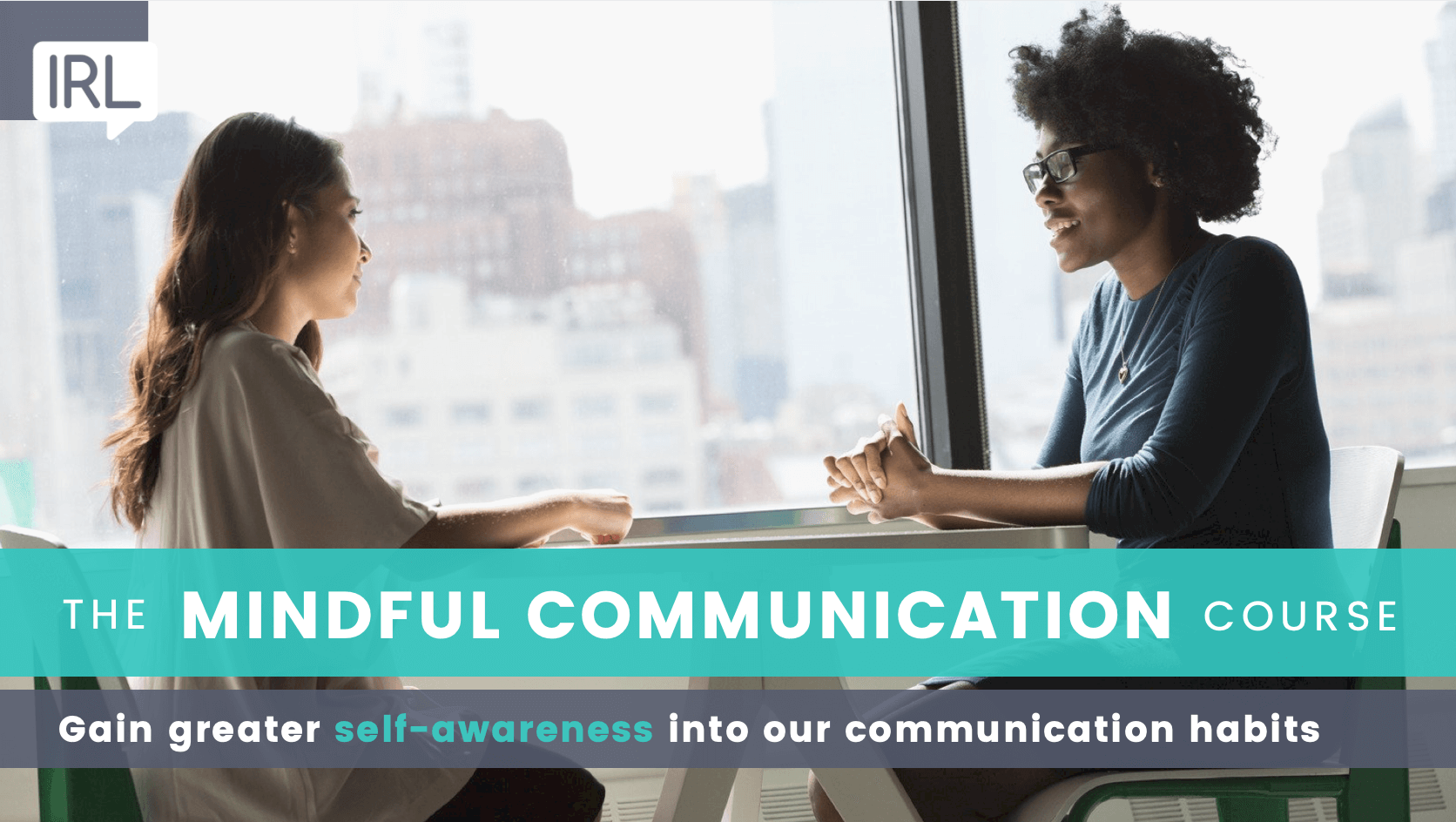So many things happen in a moment of communication: expressing an original idea or a concern, making a promise, opening up a possibility, setting a boundary, and more. When a negative thought stops you from speaking, there’s usually a lot more behind that unspoken thought that gets kept inside—or that comes out in a reactionary and unintentional way. At speech IRL, we see this acutely in people who come to us for nearly every form of communication therapy. Anxiety and shame around speech patterns keeps them from speaking. Ultimately, speaking is the only way to practice communication skills and gain confidence; avoidance perpetuates the insecurities. We have found that infusing traditional speech therapy with mindfulness is a crucial ingredient for nearly all of our clients, from stuttering to executive functioning, gendered communication, professional communication, and more.
Does “Mindfulness” Mean Meditation?
While there may be aspects of meditation involved in mindfulness, this is not inclusive of the many ways we can be present, curious, and flexible, each of the tenets of mindfulness. Communicating mindfully is knowing and choosing how you act, speak and listen in a moment of shared space. This does not mean pushing negative thoughts away. It means incurring a conscious thoughtfulness and perspective into how words and actions will affect others. The benefits of practicing mindfulness include increased self-awareness and acceptance of self. It also promotes cognitive flexibility to redirect unhelpful thought cycles and behaviors motivated by fears. Instead, we can choose to place more weight on the thoughts that are helpful, those that motivate us to act on our core desires.
In a therapeutic context, these concepts about mindful communication are backed up by Acceptance and Commitment Therapy (ACT), a research-based counseling framework that we incorporate into much of our speech therapy. In ACT, we accept every thought and feeling as it occurs. We train ourselves to allow the less helpful cycles of our minds, to redirect them towards more helpful thoughts and feelings. We allow both thoughts at once and choose to act on the one that will be most fulfilling in the long term.
Speech-language pathologist Rachel Muldoon has combined these principles with communication practice and intentional behavior change to create our new Mindful Communication course. According to Rachel, “I felt that ACT was a novel and conscientious way to address the fears and anxieties associated with stuttering and that similar fears and anxieties were also present in many of my other clients.” Rachel has also applied ACT in her work as a certified yoga instructor. She notes that “the philosophy asks not that we fight or resist negative feelings, and instead provides us with the tools to hold and work with these negative feelings effectively.” By facilitating Mindful Communication courses, she finds that she has matured in her own abilities to be purposeful and intentional in her communication.
Is Mindful Communication for Me?
Mindful communication is important for reflecting and personally assessing what truly matters in a moment of communication. It allows individuals to determine what aspects of their communication are more important to living a value-focused life, and what parts are distracting us from our true purpose. In speech therapy, we can occasionally lose sight of the big picture, and this course redirects us back to our values, and what action we can take to enact these values.
Anyone can benefit from mindful communication, but those that see the greatest benefits are those that are willing to explore their thoughts and feelings and be honest with themselves about what is truly holding them back from how they desire to interact and form relationships. Those that have the courage to accept moments of discomfort for the sake of greater insight and fulfilling interactions will gain the most from this course. Best of all, the concepts are available at any moment of the day. Once an individual has some experience with how to use mindfulness, it can be accessed in a brief two-minute break, or in a 30-minute commute, where it can be practiced routinely and with greater effects on everyday life.
Practice Mindful Communication
Our Mindful Communication course goes beyond the surface level of communication skills. We explore what we hold truly dear, including concepts such as acceptance, establishment of values, and contact with the present moment to communicate more effectively and in a way that is personally fulfilling. Participants engage in discussions, experiential exercises, and reflections to better come to know their own ways of thinking, functioning, and interacting. Overall, the course opens participants up to see the big picture: why they are bothering to work on communication skills in the first place. From this enhanced space of self-awareness, they work towards intentional communication, stronger relationships, and deliberate engagement with personal values.
The Mindful Communication course is ultimately an opportunity to gain greater self-awareness into our communication habits, how these habits may affect others, and what effect we want to have on others. We explore our personal intrinsic values and what goals we aim to accomplish that will live out these values. Click here to learn more and reserve your seat today.

